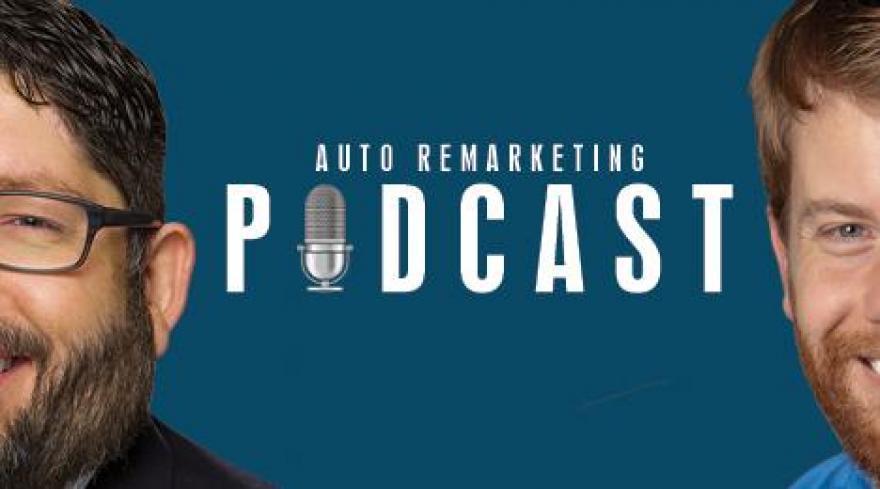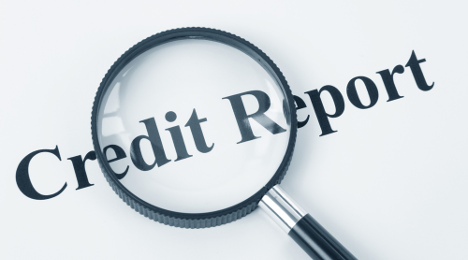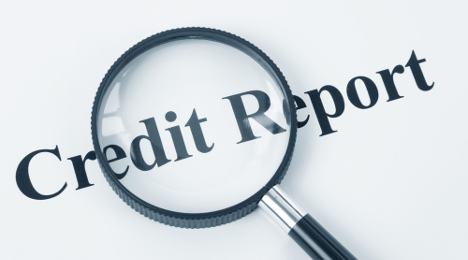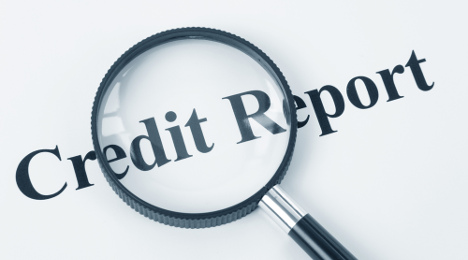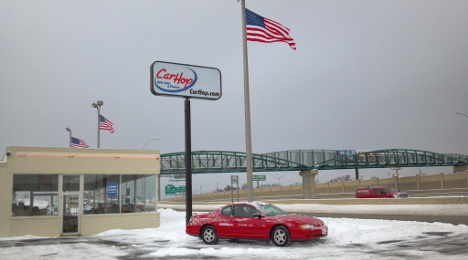During a podcast recorded during the Vehicle Finance Conference hosted by the American Financial Services Association, Nick shared another conversation with Jennifer Reid, the vice president of automotive strategy and marketing at Equifax Automotive Services.
Reid revisited strategic recommendations to help dealerships and finance companies learn more about potential buyers from their credit reports than just their top-line score.
The full episode can be found below.
Download and subscribe to the Auto Remarketing Podcast on iTunes or on Google Play.
You can also listen to the latest episode in the window below.
Catch the latest episodes on the Auto Remarketing Podcast homepage and on our Soundcloud page.
Please complete our audience survey; we appreciate your feedback.
The volume of consumers without a bank account is now at an all-time low.
For the third consecutive survey period, the number of U.S. households without a bank account fell, according to the results of the 2017 biennial National Survey of Unbanked and Underbanked Households released by the Federal Deposit Insurance Corp. (FDIC).
Officials reported the percentage of U.S. households that were unbanked in 2017, the most recent year of the survey, was 6.5 percent, the lowest rate recorded since the FDIC began conducting the survey in 2009. It was down from 7.0 percent in 2015, and down significantly from a high of 8.2 percent in 2011.
The FDIC explained the unbanked numbers for 2017 equate to 14.1 million adults in 8.4 million households not having a checking or savings account.
Officials believe the decline in the unbanked rate from 2015 to 2017 can be explained almost entirely by improvements in the socioeconomic circumstances of U.S. households.
The number of underbanked U.S. households was also down compared to 2015 levels. In 2017, 18.7 percent of U.S. households were considered underbanked, or approximately 48.9 million adults in 24.2 million households.
For purposes of the survey, the term underbanked refers to households that had an account at an insured institution but also obtained financial products or services outside of the banking system.
Consistent with previous surveys, the FDIC found that the banking status in 2017 varied considerably across the U.S. population.
For example, unbanked and underbanked rates were higher among lower-income households, less-educated households, younger households, black and Hispanic households, households headed by working-age individuals with a disability, and households with incomes that tend to vary from month to month.
Officials mentioned mobile banking continues to become an increasingly important way for consumers to access their accounts. In 2017, mobile banking was used by 40.4 percent of banked U.S. households to access their account, almost double the 23.2 percent four years earlier.
According to the survey results, 86.0 percent of banked households visited a bank branch in the past 12 months, and 35.4 percent visited ten or more times. Officials determined this figure held true for households that used online or mobile banking as their primary means for accessing their accounts: 81.0 percent of banked households that used mobile banking as their primary method visited a branch in the past 12 months, and nearly one-quarter (23.0 percent) visited ten or more times.
Other key findings in the survey include:
— Nearly 13 percent of households (14.8 million households) demonstrated unmet demand for mainstream small-dollar credit, and a majority of these households (57.2 percent) reported staying current on bills in the prior year. The report notes that new underwriting technologies, such as those that rely on transactions in consumers’ checking accounts, could help expand credit availability for some of these households.
— One in five U.S. households (22.7 million households) did not use mainstream credit in the prior 12 months and, consequently, may lack a credit score. Black and Hispanic households at every income level evaluated in the survey were more likely to be in this condition than white households. The report notes that helping these households establish and build a credit history can make it easier for them to access credit on reasonable terms when a need arises.
— Along with 86 percent of banked households, almost one in six unbanked households visited a bank branch in the past year. The report notes that these visits may represent key opportunities to inform unbanked households about products and services that can meet their needs.
— While unbanked rates have fallen in recent years, those that remain unbanked have proven more and more likely to respond that they are “not very likely” or “not at all likely” to open a bank account in the next year (75.0 percent in 2017 versus 62.1 percent in 2013). This fact, along with evidence that certain population segments remain much more likely to be unbanked, suggests that strategies targeted at addressing barriers to bank account ownership for specific groups may help further reduce unbanked rates.
— The share of households reporting that they turned to nonbank firms in the last year for the provision of credit and transaction services tracked in the survey dropped to 22.1 percent, down from 24.0 percent in 2015 and 24.9 percent in 2013. The drop was evidenced in both the use of credit and transaction services.
“The good news is that our nation’s banking system is serving more American households than ever before. The bad news is that even as the overall number of people who are unbanked has declined, 8.4 million households continue to lack a banking relationship,” FDIC chairman Jelena McWilliams said.
The impact of TransUnion’s acquisition of FactorTrust last November is still creating developments nearly a year later.
On Monday, TransUnion joined with the National Independent Automobile Dealers Association as its latest Bronze-level National Corporate Partner, expanding its commitment to provide the most complete and multidimensional information available to independent vehicle dealers nationwide.
TransUnion creates and provides solutions designed to give auto finance companies and dealers the tools to succeed, knowing that understanding consumer demands and behavior is key to engaging the right customers, making competitive offers and building long-lasting loyalty.
TransUnion looks to go beyond traditional credit information to deliver the insights dealers need to make informed decisions. Its broad array of solutions — credit risk management, alternative data, marketing segmentation, digital marketing, fraud and identity solutions, collections and recovery solutions and business intelligence — can allow dealers to operate with efficiency and security while creating a smooth customer experience.
“Through its acquisition of FactorTrust, TransUnion now brings substantial and immensely relevant alternative risk mitigation data for our buy here, pay-here members,” NIADA senior vice president of member services Scott Lilja said.
“TransUnion is committed to providing our members with the best in market credit scoring, risk mitigation and ID and fraud solutions,” Lilja continued.
For more information, visit www.transunion.com/business.
An operation with deep roots in buy-here, pay-here is rolling out a solution within the alternative-data space.
Tricolor, one of the nation’s largest used-vehicle retailers focusing on Hispanic consumers, announced that it has reached a licensing agreement with WorkRecords to broaden the company’s platform and develop what leaderships contends will be a proven and reliable mass market credit score for hourly workers and credit invisibles.
According to the Consumer Financial Protection Bureau, more than 45 million people in the United States lack a credit score or are unable to be scored effectively by traditional credit bureaus. Tricolor insisted these customers are often locked out of mainstream financial services.
Dallas-based WorkRecords is an innovative technology platform company connecting workers and employers with an enterprise-class, labor supply chain application for sourcing, tracking and payments for labor deployed by large employers.
WorkRecords contends the hourly labor market is vast with 77 million people in the U.S. being paid hourly at a total spend greater than $2.2 trillion annually. WorkRecords added that 60 percent of the current workforce earns less than $16 per hour.
“Our conviction is that ‘ability to pay’ is the best predictor of loan performance for this demographic profile, and we intend to apply our experience in lending to the unbanked consumer and utilize WorkRecords’ data to provide access to more affordable credit for this highly underserved segment,” Tricolor chief executive officer Daniel Chu said.
“WorkRecords has created a world-class solution to automate the workflow for employers while providing the hourly worker with an efficient tool to optimize earning potential,” Chu continued. “In doing so, WorkRecords has assembled a uniquely powerful and valuable set of data which potentially offers deep insights into credit worthiness.”
Chu went on to note that Tricolor’s proven and proprietary credit decisioning engine demonstrates its advanced analytical competency and serves as the foundation for this new risk model.
For nearly a decade, Tricolor has successfully scored no-file and thin-file Hispanics, validated by four ABS securitizations. Its segmentation model assesses unique, nontraditional attributes for no credit and low-income consumers in order to successfully gauge intent and ability to repay.
Chu added this innovative concept will potentially remove the current low ceiling on this segment’s access to affordable credit, and Tricolor has engaged in the process of assembling a network of financial services providers which will utilize the score to provide more attractive terms.
“The positive impact on these consumers’ lives can be significant by providing a path to fair credit and affordable lending,” Chu said. “Based upon reactions from potential lender partners, we expect our strategy will be embraced by those financial services providers seeking to improve their value proposition and more effectively serve this segment.”
As reports continue to arrive stemming from the damage caused by Hurricane Harvey in Texas and elsewhere along the Gulf Coast, Ignite Consulting Partners gave buy-here, pay-here dealers and other auto finance providers three reminders associated with credit reporting for consumers residing in locations declared as disaster areas.
Chief optimization officer Richard Hudson acknowledged that some BHPH operators and other data furnishers are unaware, but the consumer reporting agencies (CRA) have included guidance to institutions on how to report accounts in these circumstances.
“It is important for data furnishers to understand what they can do to help mitigate negative information on their consumers that have been impacted by natural disasters,” Hudson said in a message sent to BHPH Report. “The Credit Reporting Resource Guide gives specific guidance in their frequently asked questions and answers section on how to report trade-lines for consumers effected in this way.”
Hudson pointed out there are three ways operators can report on open accounts, including:
1. Report the Special Comment AW to indicate the account is affected by a natural disaster.
2. Report the special comment the same as option 1 and change the account status to 11.
3. If you decide to defer payments for the customer, you can report the account as deferred and change the special status to AW.
Hudson also emphasized there is a difference in the way operators need to report derogatory accounts.
“Before you make these or any related changes, it is important that you engage an expert in this area who can ensure you have updated all of the required fields correctly,” Hudson said. “You should reach out to your CRA or a firm like Ignite Consulting Partners for further guidance.
“By making these and other required changes, data furnishers will help protect their customers,” he continued. “When the consumer is able to pay again, the furnisher simply removes the comment, and the account will begin to report normally again.
“Many consumers are suffering the worst catastrophe of their lives right now. It’s important for businesses to do everything they can to get our part right,” Hudson went on to say.
Whether or not your operation is being impacted by Hurricane Harvey, Hudson discussed the intricacies of credit reporting — including the reporting of accurate information and properly responding to disputes — during a recent webinar hosted by Ignite Consulting Partners. Details about that session can be found here.
Ignite Consulting Partners is hosting a free webinar focused on one of the most complicated services buy-here, pay-here dealers sometimes offer their customers — reporting of payment activity to one of the credit bureaus.
Richard Hudson, chief optimization officer at Ignite Consulting Partners, is scheduled to conduct a one-hour discussion focused on some of the best practices BHPH dealers can use to ensure they are reporting information correctly. The free webinar is set for 2 p.m. ET on July 18.
“Furnishing consumers’ information to the bureaus is a process fraught with risk for those who are not prepared,” Ignite Consulting Partners said.
“During this free webinar, we will discuss concrete steps you can take to help mitigate risk, protect your business and, most importantly, ensure that you are taking care of your customers,” the firm added.
Hudson will drill down into three topics, including:
—Reporting accurate information
—Properly responding to disputes
—Getting the process right for your business
Hudson is the former director of iDMS and inventory support at DealerSocket, as well as the former manager of tech support at AutoStar Solutions. He has eight years of experience of working with some of the biggest names in the automotive industry and has expertise in credit reporting compliance and processes, collections processes and management, retail installment contract servicing and team management.
Dealers can register for the webinar here.
Alternative credit data provider FactorTrust and 700Credit, which offers credit reports, compliance solutions and prescreen products, finalized an alliance this week to provide buy-here, pay-here dealers with access to alternative credit information for potential customers who have thin credit files or are underbanked.
The companies pointed out that many customers who lack the traditional loan tradelines such as credit cards and mortgages still have verifiable payment histories through transactions such as short-term or installment loans, credit and pre-paid cards, non-prime automotive loans, retailers, wireless services and collection agencies. FactorTrust can provides unique credit data that incorporates these alternative credit sources that are not reported by the Big 3 credit bureaus.
“There is a growing need in the auto industry to provide predictive alternative data sources for potential customers that might have gaps in traditional credit information,” said Ken Hill, managing director of 700Credit. “FactorTrust provides information that can help auto dealers qualify more customers and increase conversion rates. Providing access to alternative forms of payment history is a win-win for both dealer and consumer.”
The alternative payment information can be particularly valuable to BHPH dealers. Providing alternative sources of payment histories in consumer credit reports can make the difference in a successful sale.
“Relying entirely on traditional data sources does not provide the complete picture of consumers with credit scores under 700,” FactorTrust chief executive officer Greg Rable said. “Combining alternative credit data with traditional credit data gives a comprehensive overview of a consumer.
“As a result, lenders unearth creditworthy prospects that are not surfacing via traditional credit sources. Subsequently, consumers are evaluated by the whole of their financial decisions — not just a snippet,” Rable added.
To learn more about 700Credit, visit www.700Credit.com and for more information about FactorTrust, go to www.factortrust.com.
There is still time for buy-here, pay-here operators — especially ones who can easily travel to Dallas — to register for the training sessions the National Independent Automobile Dealers Association is organizing for its first BHPH Summit.
The event is set for next Tuesday, Wednesday and Thursday at the Embassy Suites DFW Airport North.
“It’s yet another addition to an NIADA toolbox that continues to expand our level of service to the BHPH industry,” NIADA chief executive officer Steve Jordan said.
Here are some of the agenda highlights of the summit that’s being led by NIADA director of dealer 20 groups Chuck Bonanno as well as the association’s two other 20 group moderators and training consultants — David Brotherton and Mark Dubois:
— 2017 industry trends and opportunities
— Credit reporting
— Remote payment options
— Underwriting in a competitive environment
— Collections best practices
— Network monitoring and cyber security
— Lead management basics
— Future of GPS and starter interrupt technology
Some of the other experts scheduled to be part of the summit include Susan Perlmutter of Sigma Payment Solutions, Steve Levine of Ignite Consulting Partners, Lawrence Pappalardo of Equifax, Robert Wilson of DealerSocket and Bill Neyland of TaxMax.
The association is also assembling a collection of capital providers who will provide their insights into the capital situation facing many of today’s dealers.
NIADA senior vice president of legal and government affairs Shaun Petersen also is on tap to share a regulatory update to summit attendees, as well.
The summit begins with a special welcome reception hosted by Kevin Carr, who is the vice president of financial services at PassTime GPS.
“The entire dealership staff can take something valuable back from this event, and we’re encouraging dealers to bring their managers, salespeople, service staff and collectors by offering discounts for dealerships that bring multiple attendees,” Jordan said.
“While the scope of this event is large, the idea behind it is simple,” he continued. “We want to help every BHPH dealer become stronger, more efficient, more compliant and more profitable. We want to give them the latest information, the best tools and the brightest ideas to make that happen.”
More details about the event can be seen in the video at the top of this page or by going here.
Operators can complete registration for the NIADA’s BHPH Summit by going to this website.
DMS provider Wayne Reaves Software rolled out an enhancement to its current platform that can provide the capability for buy-here, pay-here dealers to furnish credit data to Equifax.
The companies highlighted on Monday that the technology enhancement allows for a streamlined reporting process, using a program provided by Equifax together with the National Independent Automotive Dealership Association and the National Alliance of Buy-Here, Pay-Here Dealers.
“Reporting credit data can benefit both dealers and their customers,” Wayne Reaves president Jason Reaves said. “On one hand, you have dealers who will be armed with a more comprehensive view of a customer’s loan payment history, improving their ability to assess risk. And on the other, dealers who report credit data can provide a compelling value proposition for their customers, as timely payments could help them build their credit.”
Reaves added the latest version of the tool will help to support compliance efforts with consistent and seamless reporting of trade line data.
The company mentioned the enhancement will also offer access to Automated Data View, an Equifax solution that can allow dealers to quickly view the accuracy of reported payment and collection information, in support of the consumer dispute process.
“Traditionally, many independent and buy-here, pay-here dealers have faced obstacles in reporting their customers' auto loans and payments,” said Ryan Guthrie, vice president enterprise alliances of Equifax. “Previously, dealers had to hold a minimum number of accounts, which can be difficult for smaller operations to meet.
To help overcome these barriers, we started a program last year to enable NIADA and NABD dealer members to report their loan payment data to Equifax, regardless of how many accounts they hold, and Wayne Reaves has now successfully automated the process,” Guthrie added.
Wayne Reaves will be at the 18th annual National Conference for BHPH this week in Las Vegas to train customers on how to utilize the platform and report auto loan payment data to Equifax.
Buy-here, pay-here operators who report their customers’ successful payments to a credit bureau should take note. Allegedly not completing the process correctly according to the Consumer Financial Protection Bureau cost BHPH chain CarHop more than $6 million in penalties.
On Thursday, the CFPB said it’s taking action against CarHop, one of the country’s biggest buy-here, pay-here dealership networks, and its related finance company, Universal Acceptance Corp., for providing what the regulator deemed to be “damaging, inaccurate” consumer information to credit reporting companies.
Bureau officials indicated CarHop and its RFC also failed to provide accurate, positive credit information that it promised consumers it would supply to the credit reporting companies.
The CFPB’s investigation found that the companies inaccurately reported information for more than 84,000 accounts on a widespread and systemic basis. The CFPB is ordering the companies to cease their illegal activities and pay a $6,465,000 civil penalty.
In a statement on the company’s website, officials said, “We have agreed to this settlement, under which we have not admitted to the CFPB’s allegations, to move beyond the distraction of the investigation started in May of 2012.
“Although the CFPB has made a number of allegations, it did not find that any consumer is entitled to any damages,” CarHop continued.
“CarHop/UAC strives to comply with all applicable laws and regulations and provide exemplary service to our customers,” the BHPH operator went on to say. “Over the last several years and prior to the initiation of the CFPB investigation, we had taken and have continued to take steps to positively enhance our customers’ experience.
“We look forward to an ongoing relationship with the CFPB and hope to continue our constructive dialogue to improve our customer service and compliance practices in the years ahead,” officials added.
Minnesota-based CarHop, also known as Interstate Auto Group, is one of the largest BHPH dealers in the nation. CarHop has approximately 50 retail locations in approximately 15 states. CarHop sells vehicles primarily to customers with nonexistent or poor credit histories in need of subprime or deep subprime credit. It markets itself as a way for these consumers to rebuild or build-up good credit by saying it will provide positive payment histories to the credit reporting companies. Consumers who buy from CarHop frequently do so because they suffer from poor credit scores and other financial challenges.
Universal Acceptance, on behalf of CarHop, furnishes consumer account information to all three major consumer reporting companies on a monthly basis.
The CFPB said found that the company reported information that it knew or had reasonable cause to believe was inaccurate. The bureau indicated the company “inaccurately” furnished information for more than 84,000 accounts from about January 2009 until September 2013.
“With CarHop, consumers may not have even known about the damage to their credit profiles resulting from the erroneous reporting unless and until they checked their credit reports,” officials said.
Almost all the information the companies inaccurately furnished to the credit reporting companies could potentially harm customers. The CFPB contends the negative information could lower a consumer’s credit score, hamper their ability to obtain other credit and hurt their job prospects.
The CFPB also found that CarHop and Universal Acceptance violated the Fair Credit Reporting Act and the Consumer Financial Protection Act. Specifically, the companies:
1. Deceived consumers into believing they could build up good credit with CarHop
As part of its marketing and sales practices, the CFPB pointed out CarHop represented in writing to consumers that it reports “good credit” to the credit reporting companies. CarHop also emphasized to consumers its part in helping them build and maintain good credit.
“This appealed to consumers trying to build up their credit profiles with a history of on-time payments,” bureau officials said. “But the company, through Universal Acceptance Corporation, failed to furnish certain positive information, including information that would support ‘good credit,’ for tens of thousands of consumers.”
2. Provided inaccurate repossession information
The bureau stated CarHop customers had the right to voluntarily return their vehicles within 72 hours of purchase for a full refund without any penalties or additional obligations. But for some customers who returned their vehicles under this policy, Universal Acceptance did not accurately report to the credit reporting companies what really happened.
“Instead, the company inaccurately reported on numerous occasions that the cars had been repossessed or that the consumer still owed money,” officials said.
3. Incorrectly reported previous customers as still owing money
For consumers 72 hours past purchase, the bureau acknowledged CarHop often resolved disputes by having the customer return the vehicle. It then issued documentation to the customer saying they no longer had any financial obligations and had settled their account.
“But for hundreds of customers, in the months or even years that followed after they returned their vehicles, Universal Acceptance Corporation inaccurately furnished, on a monthly basis, information that said that the customer still had an outstanding balance,” bureau officials said.
“Sometimes, the company inaccurately reported the amount past due in continuously increasing amounts,” they added.
4. Failed to have reasonable written policies and procedures to ensure the accuracy of consumers’ credit information
The CFPB found Universal Acceptance had no written policies and procedures regarding the accuracy and integrity of the consumer information it furnished until early August 2013.
“The policies it adopted that month were not reasonable or appropriate to the nature, size, complexity, and scope of the company’s activities,” officials said.
More details of enforcement action
Pursuant to the Dodd-Frank Act, the CFPB has the authority to take action against institutions or individuals engaging in unfair, deceptive, or abusive acts or practices or that otherwise violate federal consumer financial laws. Under the terms of the CFPB orders released today, CarHop and Universal Acceptance must:
• Cease misrepresenting that they will report “good credit”: The companies must not misrepresent to customers that they will report “good credit” or other positive information to the credit reporting companies.
• Correct credit reporting information: If Universal Acceptance furnished information to a credit reporting company that it knew or had reasonable cause to believe was inaccurate, it must notify the credit reporting company of the inaccuracy. When it does so, it must either provide corrected information or request that the company delete the wrong information from the consumer’s file if accurate information is not available.
• Provide credit reports to harmed consumers: CarHop and Universal Acceptance must, for consumers who had incorrect information furnished about their accounts, arrange for consumers to obtain free credit reports from the credit reporting companies that received the inaccurate information.
• Implement an audit program to ensure laws are followed: CarHop and Universal Acceptance must implement a process for auditing information that Universal Acceptance furnishes to the credit reporting companies on a monthly basis. This process must include monitoring and evaluating the disputes the companies receive. The audit is designed to ensure the integrity and accuracy of the information.
• Pay a $6,465,000 civil penalty: CarHop and Universal Acceptance will pay a $6,465,000 penalty to the CFPB’s Civil Penalty Fund.
“Many consumers went to CarHop because they needed transportation and wanted to build up a good record of paying their bills,” CFPB director Richard Cordray said. “But CarHop and Universal Acceptance Corporation thwarted those expectations by inaccurately furnishing negative credit information.
“The CFPB will not stand for companies whose sloppy actions jeopardize consumers’ credit,” Cordray added.

